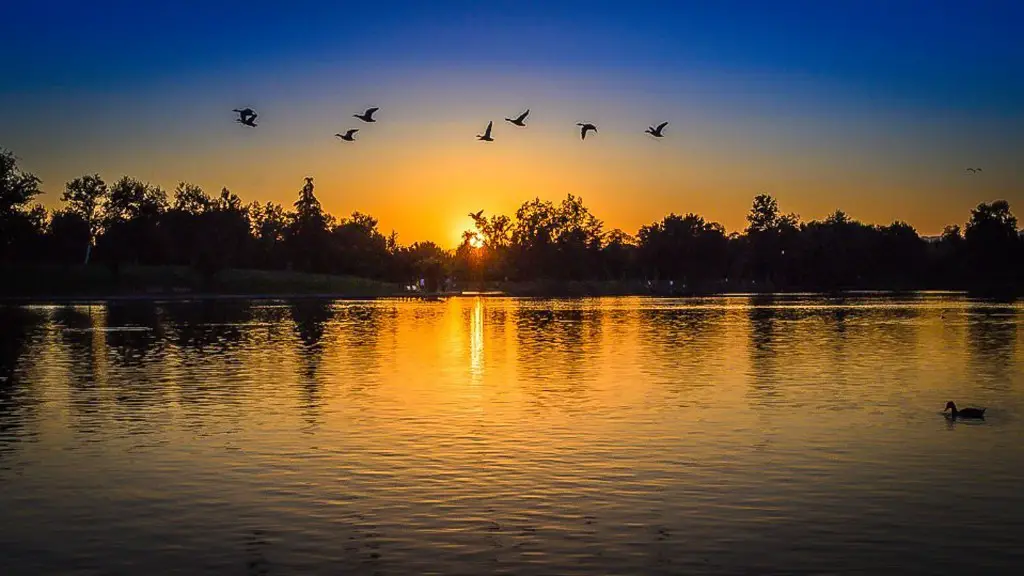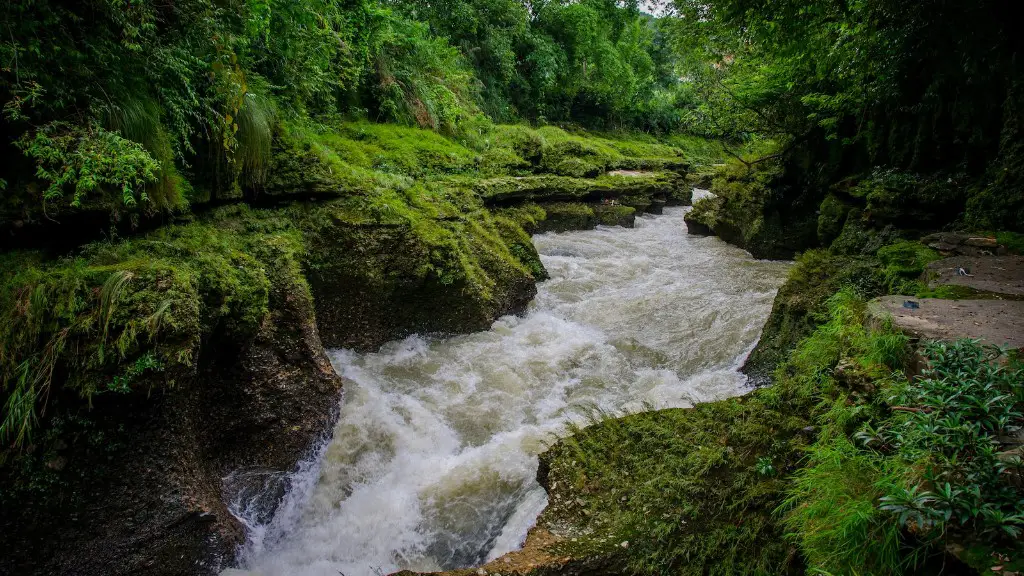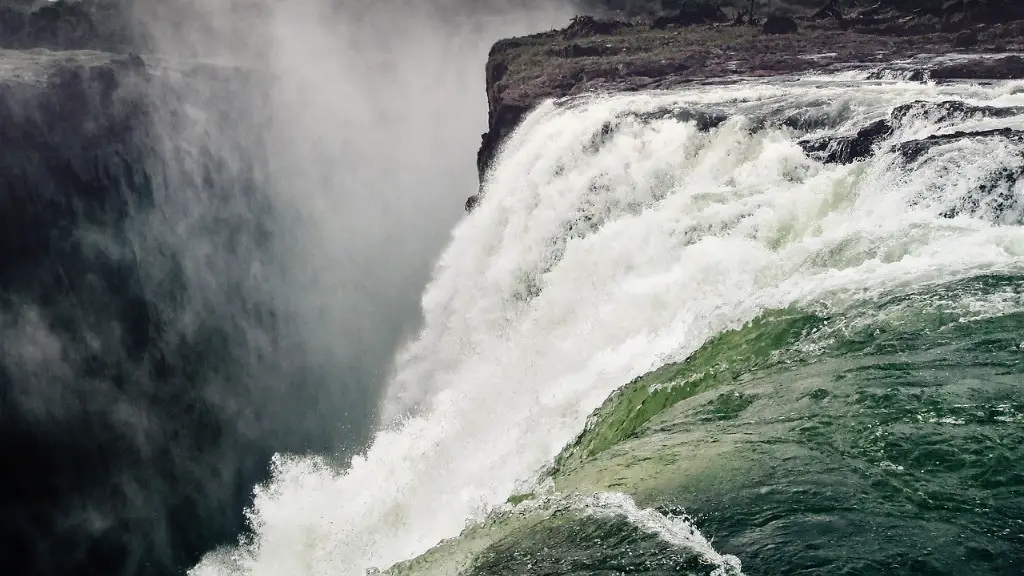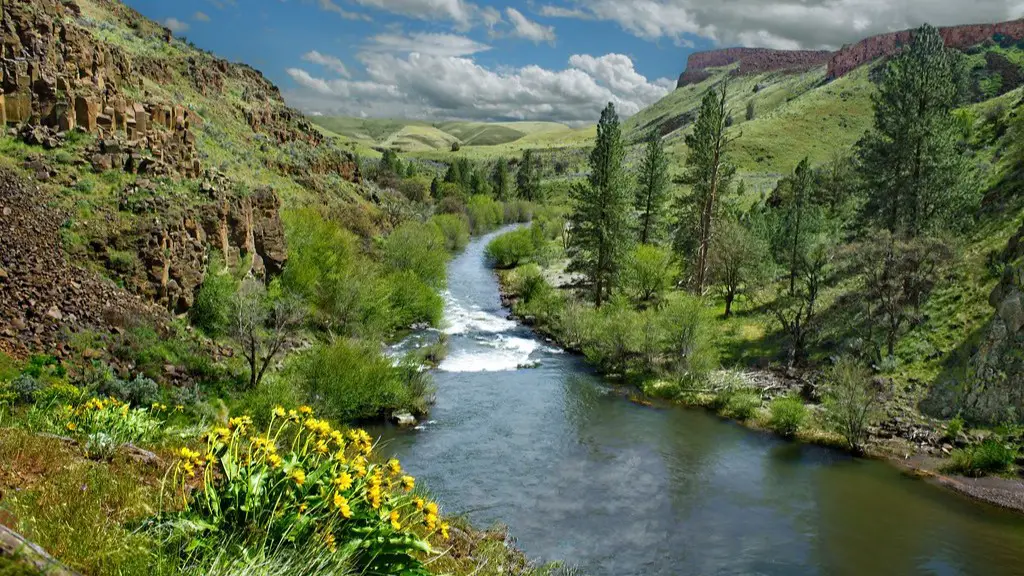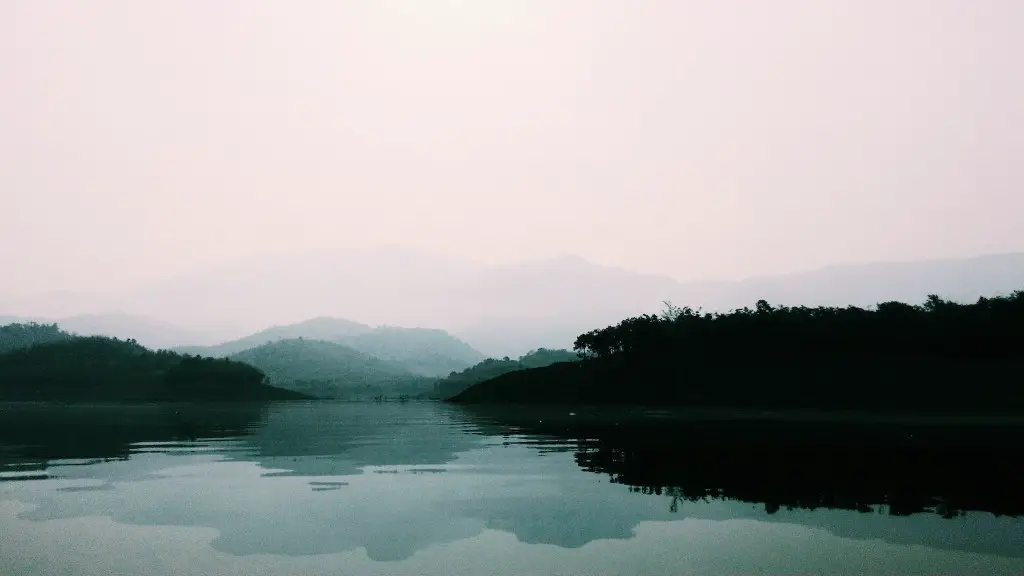The Nile River has been a lifeline for Africa since time immemorial. It is Africa’s longest river and has been the source of livelihood for many of its inhabitants for centuries. The river runs through ten African countries and provides water for transportation, irrigation, and economic development. It has had a major impact on African societies and is an important component of their collective social and cultural identity.
The Nile is the world’s longest river and its source lies in the mountains of East Africa. It flows northwards through Egypt, Sudan, South Sudan, Ethiopia, Uganda, Tanzania, Rwanda, Burundi, Kenya, and finally it enters the Mediterranean Sea. It has played an integral role in the economic development of Africa since ancient times. Egypt’s share of the Nile has been a major factor in its historical wealth, with Egypt investing heavily in building a network of dams to channel the river’s water and to ensure reliable irrigation of its fields.
In addition to providing a steady source of water for agricultural purposes, the Nile is also used for transportation purposes in many of the countries. Its banks are lined with barges and canoes carrying goods between the countries. The river also has vast hydro-power potential, which is only just beginning to be tapped. For example, Ethiopia has built the Grand Renaissance Dam, the largest hydroelectric project in Africa, on the Blue Nile. Once completed, the dam is expected to produce almost 15,000 megawatts of electricity and benefit roughly 45 million people in the region.
The Nile has also played a significant role in the history and culture of many African societies. It has been an important part of Egyptian history since the time of the Pharaohs. In fact, the Egyptian Pharaohs saw the Nile as a divine gift and made major contributions to their economy through investments in irrigation schemes that allowed them to grow large crops of grains and fruits. In other countries such as Sudan and South Sudan, it has also been an important source of trade and commerce.
The Nile is also an important source of environmental and cultural biodiversity. It is home to many species of wildlife, including some of the rarest and most endangered species in the world. It is also a habitat for many birds and fish, which are important to the people who live along its banks. Aside from these ecological benefits, the Nile has long been celebrated as a source of inspiration for artists, writers, and scholars in all the cultures it passes through.
Overall, the Nile is an essential element to the African continent and its people. It is a vital resource that is used for a wide variety of purposes, and its role in the development of African societies has been immense. Despite the many challenges that it faces due to climate change, it remains a critical source of livelihood and sustenance.
Impact on Cultures & Societies
The Nile has played a vital role in the development of many African cultures and societies. Its riverbanks have been home to some of the continent’s most important ancient civilizations and have served as a conduit for important cultural exchanges between different African peoples. In Egypt, for example, the Nile helped to establish the great city of Thebes, the capital of the ancient Egyptian empire. In Ethiopia, the river was used as a major transportation route, allowing goods and ideas to travel between the country’s highland plateau and the Arabian Peninsula.
The Nile has also played an important role in the modern-day development of African cultures. It has served as a link between northern and southern Africa, allowing goods and ideas to flow between the two regions. It is also a major source of inspiration for African literature and art. The river has been immortalized in works such as Jean-Léon Gérôme’s painting, “The Nile at Thebes.” Its many stories, myths and legends have been an important part of African oral tradition and continue to inform the cultures of modern-day African nations.
Moreover, the Nile has been an integral part of the development and evolution of African religions and spiritual practices. Ancient Egyptians venerated the Nile as a source of life and believed that its yearly flood enriched their land. Many African religions today still worship gods associated with the Nile, such as Sobek and Hapi. In addition, the river has been an important source of inspiration for African spiritual practices, with its waters being used in rituals to bring peace, prosperity and fertility.
Environmental Issues
As with all major rivers, the Nile is facing a number of environmental challenges due to an increasing human population and climate change. Pollution and overuse are taking a toll on the river’s health, and its water levels have been dropping in recent years. This has put a strain on many African economies that rely on the river’s waters for irrigation, hydroelectric power and transportation. In addition, overfishing, sedimentation, and water extraction are also affecting the river’s aquatic life.
Climate change is expected to have a major impact on the Nile basin in coming years. Rising temperatures, changes in rainfall patterns and melting glaciers will all affect the river’s water levels and flow. In addition, changes in sea levels and ocean currents could cause higher tides in the river, leading to flooding and further erosion of the riverbanks.
In order to address these environmental challenges, governments and international bodies have been working to develop a Nile Basin Initiative. This is a long-term strategy aimed at increasing coordination among the countries in the basin and improving the management of the river’s resources. The initiative’s goal is to ensure that the river’s resources are managed in a sustainable manner, that the benefits are shared equally, and that the environment is protected.
Political Issues
The Nile basin is a shared resource, but due to its vast water resources, it has been a source of political conflict between the countries that share in its use. Egypt has long been seen as a dominant power due to its large share of the river, while Ethiopia and other upstream countries have opposed this dominance and sought to gain a larger share of the waters. In recent years, the tension has risen due to Ethiopia’s construction of the Grand Renaissance Dam, which has sparked concerns about water shortages in Egypt.
In order to address these political tensions, the Nile Basin countries have established the Nile Basin Initiative. This is a long-term strategy that seeks to build stronger relations between the countries and develop a plan for the equitable management of the river’s resources. So far, the initiative has been successful in improving relations between the countries and has developed plans for the sustainable use of the Nile’s resources.
Despite the tensions and disagreements between the countries, it is clear that the Nile is an important resource for the continent and its people. It has been a source of life, culture, and economic prosperity in Africa since ancient times. In order to protect the waters of the Nile, each of these countries must be willing to cooperate and come to an agreement on the best way to manage the river.
Modern Working Conditions
The Nile has been a major source of employment for people living along its banks, providing both skilled and unskilled labor for fishing, farming, transport and other activities. In recent years, however, working conditions in many of these industries have come under pressure due to increasing competition from the global economy. Fishing and farming, for example, are increasingly subject to environmental regulations and labor laws, which makes it difficult for small-scale workers to survive.
Moreover, the development of large-scale hydroelectric projects has disrupted the livelihoods of many people living along the Nile, either depriving them of their land or forcing them to move. In order to respond to these issues, governments and international organizations have been working to improve working conditions and provide better job opportunities, especially for young people and women. This includes better access to education and training to equip them with the skills necessary to take advantage of new economic opportunities, as well as more secure tenure systems and safety nets.
As the economies of Africa continue to diversify and expand, the Nile is likely to become even more important as a source of employment. Governments and international organizations must ensure that workers along the river are protected and that their rights are respected, allowing them to benefit from the river’s many economic opportunities.
Future Perspectives
There is no doubt that the Nile will remain an important resource for the African continent in the years ahead. It is a critical source of sustenance and a major factor in the economic development of the region. In order to ensure a sustainable future, it is important that the Nile’s waters are shared equitably and used responsibly. The countries of the Nile basin must continue to develop their capacity to manage the river in a fair and sustainable way, while at the same time protecting the river and its environment.
Moreover, the Nile basin must continue to invest in initiatives that provide economic and educational opportunities for the people living along the river. This should include access to education and healthcare, job training, and access to credit. In addition, it must ensure that labor laws are enforced, that small-scale businesses are supported, and that there is an equitable sharing of resources across the basin.
The future of the Nile River is an important concern for all African countries. Its future will determine the fate of many African societies and cultures, and it is essential that measures are taken to ensure that its waters are managed responsibly and equitably. However, it is also important that people recognize the potential of the river, not just as a resource, but as a source of cultural and social identity.
